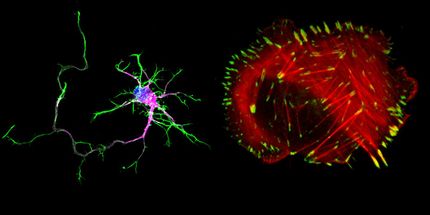Novel cancer cell DNA damage repair mechanism unveils
Research with a Finnish background facilitates the development of more effective cancer medication
Advertisement
cancer cells have an exceptional ability to repair damage to their DNA caused during uncontrolled cell division. Scientists have now unveiled a novel piece of the puzzle of cancer cell DNA repair mechanisms that explain the mechanistic changes in the genetic code of cancer cells. These findings result from application of the cell microarray screening method developed by Juha Rantala, Senior Scientist at VTT. Research with a material impact on cancer drug development was published in Science magazine.
The new findings explain partially why cancer cells, unlike normal cells, fail to die as a result of DNA damaging insults, and how this mechanism causes new genetic mutations in cancer cells. This new information directly benefits cancer research. Now that scientists understand the repair mechanism, they are better equipped to develop drug therapies that specifically target cancerous cells.
The discovered DNA repair mechanism has previously not been described in human or mammalian cells. Cancer cells use the mechanism to repair DNA damage resulting from uncontrolled DNA replication forced by activated oncogenes.
The genes that participate in the DNA repair mechanism were discovered by Juha Rantala, Senior Scientist at VTT, and Thanos Halazonetis, Coordinator of the EU-funded GENICA (Genomic instability in cancer and pre-cancer) project, with the cell microchip screening method developed by Rantala in 2010. Based on gene silencing, the method allows a single microchip to screen the functions of tens of thousands of genes simultaneously.
This finding was preceded by years of research cooperation begun by Juha Rantala, Senior Scientist, and Professor Olli Kallioniemi (currently Director of the Finnish Institute of Molecular Medicine) from VTT and Professor Thanos Halazonetis (the University of Geneva). Thomas Helleday's research team at the Karolinska Institutet also participated in the research published in Science magazine.
The research was part of the EU's GENICA project aimed at discovering why the DNA damage sustained by cancer cells in the early stages of the disease fails to result in the programmed cell death associated with normal cells.























































